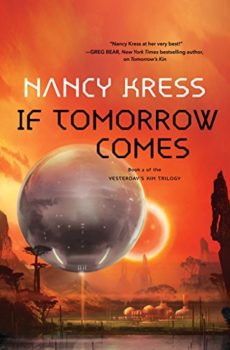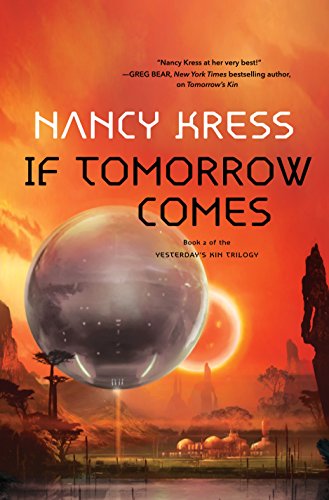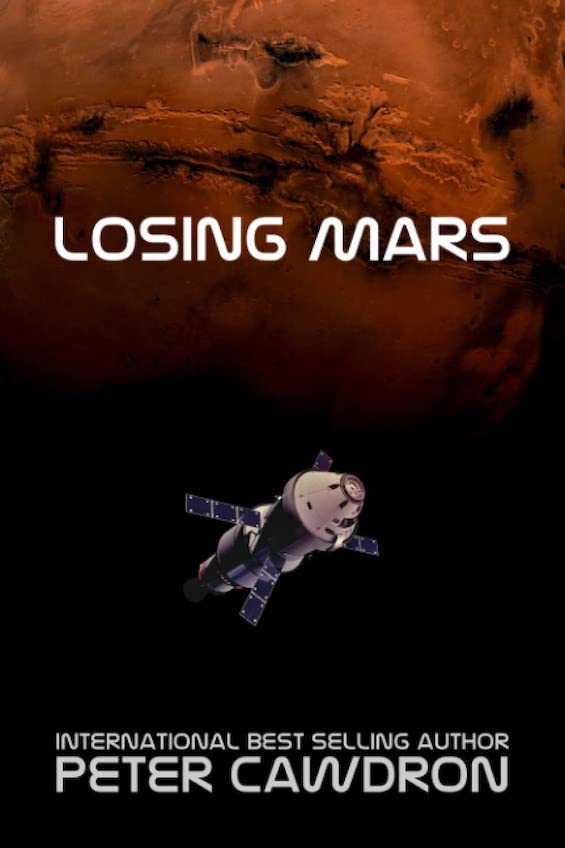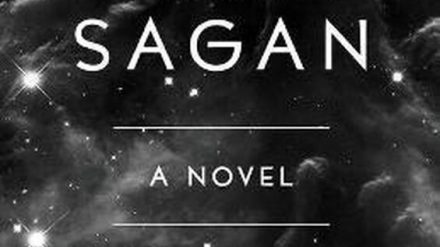
Ten years have passed since the events in Tomorrow’s Kin, the first book in Nancy Kress‘s trilogy about the arrival on Earth of the “Denebs.” Now, at the outset of the highly anticipated science fiction sequel, If Tomorrow Comes, the United States has finally launched a starship to the Denebs’s home world. But it’s clear the trip will not go smoothly; after a vague warning in the Prologue, and a succession of shocks soon after takeoff, we’re left in little doubt. The twenty-one people on board the Friendship will obviously not have an easy time on the planet they call Kindred. (The Denebs call it World.)
Estimated reading time: 3 minutes
Ten years later, a voyage to the Denebs’s home world
There are twenty-one people on board the Friendship. They include a squad of five US Army Rangers, an Army sniper, five US Navy sailors who crew the ship, six scientists including two physicians, and four diplomats led by the US Ambassador to Kindred. Among the scientists is Dr. Marianne Jenner, the protagonist of Tomorrow’s Kin. She’s the evolutionary biologist who helped develop a human vaccine against the interstellar spore cloud that had done so much damage to Earth’s ecology. On Kindred, she hopes to reunite with her estranged son, Noah. Her former prodigal son had attached himself to the Denebs and accompanied them back to their home planet. But our focus is less on Marianne Jenner than on Private Leo Brodie, the sniper attached to the Rangers for the trip. His experience, as much as Jenner’s, is central to this tale.
If Tomorrow Comes (Yesterday’s Kin #2) by Nancy Kress (2018) 336 pages ★★★★☆
Very quickly, their plans go south. Disaster strikes. And it appears that worse is in store as time goes by. Author Nancy Kress skillfully paces the story, piling one surprise on another. There is less hard science in evidence in If Tomorrow Comes than in its predecessor, but it’s there in the background. The novel is a worthy successor to the outstanding first book in this trilogy.
A note of disappointment with this highly anticipated science fiction sequel
At the risk of spoiling the story, I feel bound to note one disappointment. When the Friendship arrives off Kindred, the scientists are surprised to discover that fourteen years have passed because of relativistic time dilation. Allegedly, as one person later says, they’ve traveled thousands of light years. So, why would anyone with even a rudimentary grasp of relativity be surprised that they’ve advanced in time far ahead of when they left the Earth? Beats me.
For related reading
My review of Tomorrow’s Kin, the first book in this trilogy, is at Hard science fiction doesn’t get much better than this.
For more good reading, check out:
- These novels won both Hugo and Nebula Awards
- The ultimate guide to the all-time best science fiction novels
- 10 top science fiction novels
- The top 10 dystopian novels
- Ten new science fiction authors worth reading now
And you can always find my most popular reviews, and the most recent ones, on the Home Page.



























